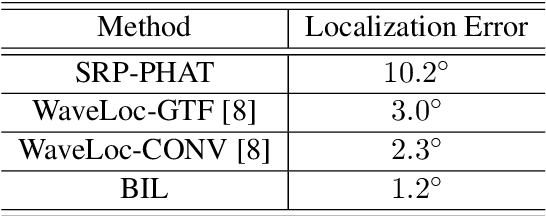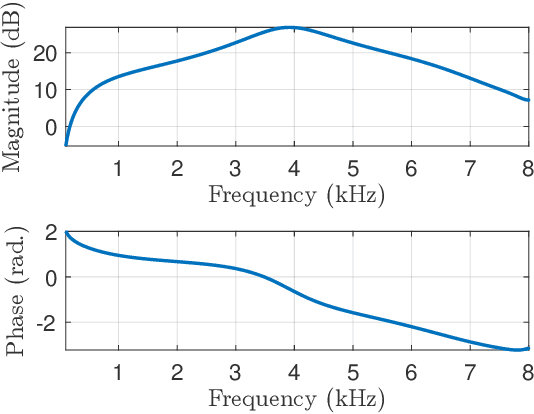Binaural Localization Model for Speech in Noise
Paper and Code
Jul 26, 2025



Binaural acoustic source localization is important to human listeners for spatial awareness, communication and safety. In this paper, an end-to-end binaural localization model for speech in noise is presented. A lightweight convolutional recurrent network that localizes sound in the frontal azimuthal plane for noisy reverberant binaural signals is introduced. The model incorporates additive internal ear noise to represent the frequency-dependent hearing threshold of a typical listener. The localization performance of the model is compared with the steered response power algorithm, and the use of the model as a measure of interaural cue preservation for binaural speech enhancement methods is studied. A listening test was performed to compare the performance of the model with human localization of speech in noisy conditions.
 Add to Chrome
Add to Chrome Add to Firefox
Add to Firefox Add to Edge
Add to Edge